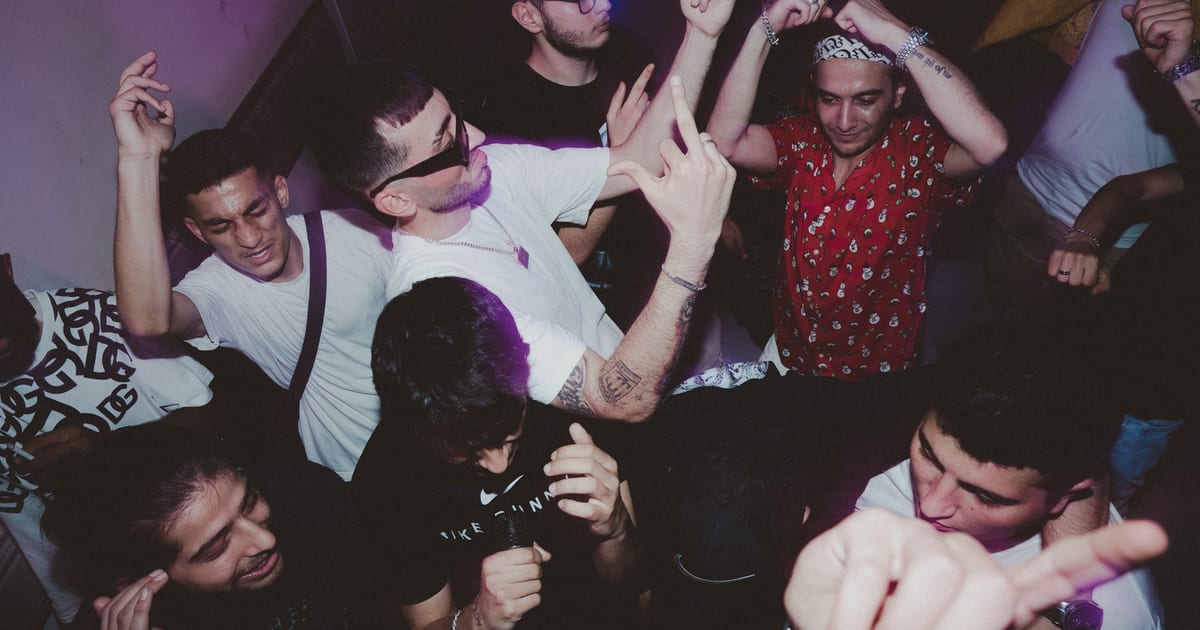The final curtain falls harshly. Sam, Sirius, and Daoud head home together. Tension fills the car – and disappointment, too. “We’re always on edge, we have to be ready if something happens. It’s exhausting,” sighs Sirius. For these young artists, there’s nothing to celebrate. “This is the last time I’m doing this in Syria,” Sam says, enraged.
That night, their minds are as dark as Latakia’s nightfall, which cloaks the city. The next day, Daoud and Sam meet by the sea, where they usually hang out. The previous night’s frustration seems to have faded. They look cheerful again. “I’m convinced what Sam said last night isn’t true. If I suggested another open mic next week, I’m sure he’d jump at the chance,” Daoud says, laughing at Sam, who chuckles awkwardly, as if to confirm it.
Being a rapper in Syria isn’t an easy path. It’s full of obstacles that must be shattered. But the call of the mic remains stronger than anything. Daoud, Sirius, and Sam often say that the rap scene in Syria is dead. Maybe it hasn’t even been born yet. Maybe they’re the pioneers of a still underground movement that, freed from the weight of authoritarianism, will eventually rise.
Aubin Eymard is a freelance journalist based in Lebanon. Follow him on
Buy your copy of Huck 82 here.
Enjoyed this article? Follow Huck on Instagram and sign up to our newsletter for more from the cutting edge of sport, music and counterculture.
Support stories like this by becoming a member of Club Huck.
